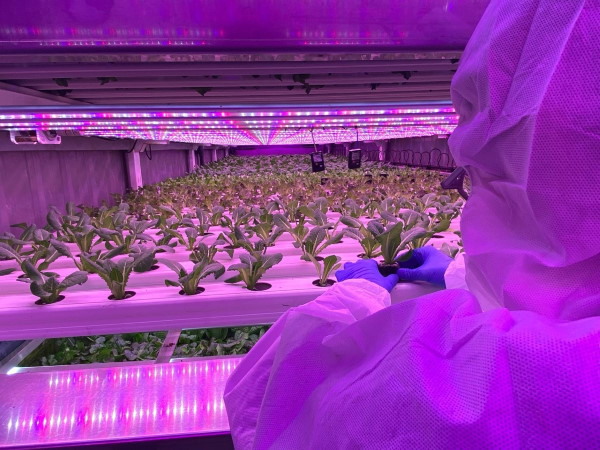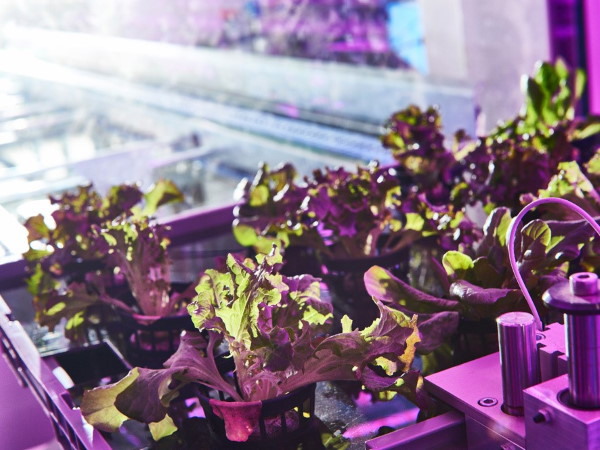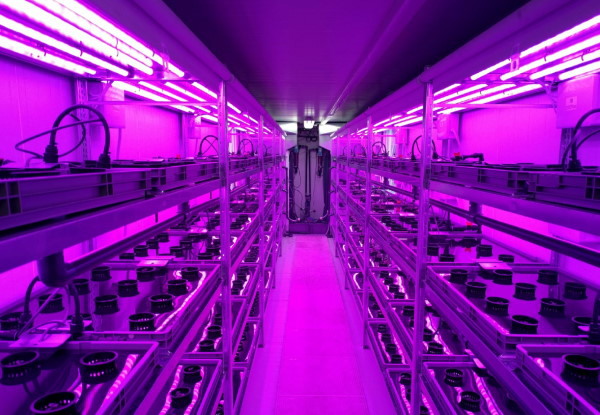The rapidly increasing global population means you can be sure of two things: there’s a never-ending demand for food, and a rapid reduction in the availability of land on which you can grow it.
The UN has predicted that the global population will surpass the 9 billion mark by 2050 which leaves government officials and scientists scratching their heads as to how we’ll provide for this colossal amount of mouths to feed. Enter vertical farming. Vertical farming presents itself as one of the answers to our population growth, which in short allows plants, fruit and veg to grow upwards rather than outwards.

With a booming culinary industry gracing the bustling global hubs such as London, New York and Tokyo, urban farms provide a controlled and automated climate to grow more delicate niche fruit and veg, as well as mass producing heavily demanded greens and herbs on that were once upon a time confined to their natural habitats.
Although, when it comes to vertical farming the question is not “what you can grow?”, it’s “what should you grow?”. Extensive R&D shows that leafy greens and herbs remain the most profitable and sustainable crops to mass produce at present. Vertical farming will become a huge part of the agricultural sector in the very near future, but why is it taking off so quickly? Here are 5 reasons why:
Increase your crops per m²
Although it may look smaller than your average outdoor farm, a vertical system can equate to 4-6 X more growth surface than your standard glasshouse or polytunnel area. 1 acre of vertical farm on average produces 4-6 acres depending on the crop density and cycle duration.

Protection from the elements
Vertical farming allows the grower to exploit the advantages of growing in a fully controllable climate, safe from the natural elements such as wind, rain and frost, meaning post-harvest spoiling and crop wastage becomes significantly less of a problem. Additionally, the secure environment results in zero pests and invasive bacteria, which allows the grower to provide organic pesticide free produce.
Reduce water consumption
Vertical farming systems allow produce to grow with 70-95% less water required for normal plant cultivation. Taking lettuce as an example: open-field production requires 250L/kg of lettuce and greenhouse systems consume 20L/kg. However, vertical systems come in at a minimal 1L/kg of lettuce, with the only water extracted during the growth cycle being that of the plants consumption, with any leftover water being recycled back through the filtering system and re introduced to the irrigation.

Standardised crop growth and yields
With vertical farming technology constantly improving, the ease of creating a completely controlled environment is increasing by the day. The use of bespoke LED spectrums, automated irrigation and climate control allows the farm to standardise each growth cycle, producing the same amount, quality and size crop, which in turn results in standardised yields.
Local production
Being a controlled environment, vertical farms can settle wherever they choose, with climates and weather patterns becoming obsolete. Local production means a positive impact on local communities, resulting in an influx of jobs and contribution to smaller economies. Its local production and harvesting of crops reduce the amount of ‘food miles’, meaning a decrease in the global carbon footprint. Research has found that vertical farms lower overall CO2 emissions by 67-92% when compared with greenhouses.
Bridge Vertical Farming partners with Urban Crop Solutions to provide high-tech automated container farms, research facilities and bespoke vertical farming solutions.
For more information: Bridge Vertical Farming
Bridge Vertical Farming
Keynor Lane
Chalk Lane
Chichester
PO20 7LL
bridgeverticalfarming.co.uk
bridge@urbancropsolutions.co.uk
01243 641789
